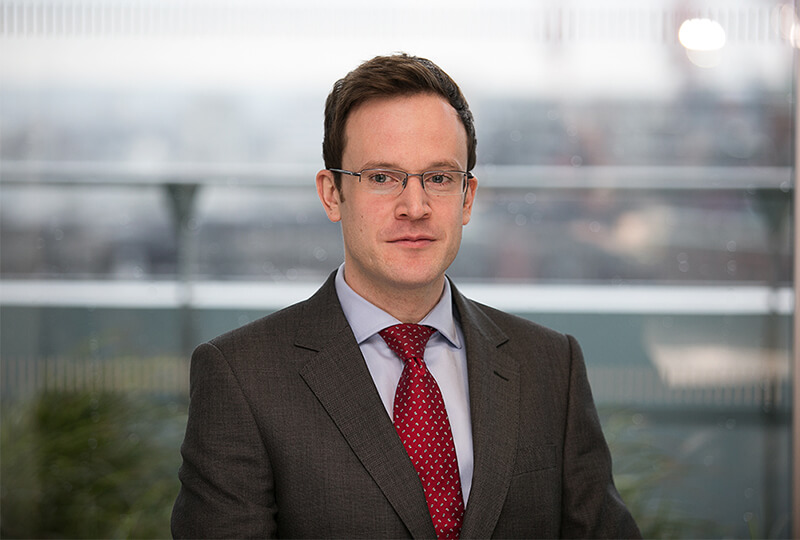First-ever greenwashing judgment against an airline delivered in the Netherlands
-
Étude de marché 25 mars 2024 25 mars 2024
-
Royaume-Uni et Europe
-
Changements climatiques
-
Aviation
The District Court of Amsterdam (the “Court”) has delivered its ruling on the case brought by Fossielvrij NL (a Dutch NGO) against KLM in relation to alleged greenwashing. It is the first greenwashing judgment against an airline, with prior scrutiny of the aviation industry in this area typically having been restricted to investigations by advertising standards authorities.
Fossielvrij NL had initially challenged 19 statements contained within KLM’s suitability campaigns by primarily alleging that they were incompatible with several provisions of the EU Unfair Commercial Practices Directive (the “Directive”) and in particular that:
- the use of the term ‘sustainable’ in KLM’s campaigns was misleading;
- KLM’s claim that it was tackling climate change was incompatible with its commitment to growth in the aviation industry; and
- KLM’s ‘CO2ZERO’ products, which were advertised as compensating for CO2 emissions, did not validly offset the climate impact of flying.
Following the filing of the claim in July 2022, KLM withdrew the relevant statements and sought to engage with Fossielvrij, whilst maintaining its position that the statements merely communicated its intention to achieve its climate ambitions. KLM argued that the withdrawal of the relevant statements resulted in there being no actionable case, but that procedural argument was rejected by the Court.
In its judgment, delivered on 20 March 2024, the Court reviewed each statement against the requirements of the Dutch Unfair Commercial Practices Act (which implements the Directive) and related Guidelines from the European Commission. It found that 15 of the 19 statements were misleading and constituted prohibited commercial practices.
However, the Court declined to grant any injunctive relief, with the relevant claims having already been withdrawn on a voluntary basis, and Fossielvrij’s requested injunction covering any ‘similar statements’ being too wide in scope and potentially contrary to Article 10 of the European Convention on Human Rights. The Court also declined to grant an order requiring the publication of corrective texts in KLM’s online marketing communications, the publications of rectification statements in national newspapers and the writing of letters to affected consumers.
In finding in favour of Fossielvrij, the Court’s reasoning included the insufficient specificity of some of the sustainability claims, and that the statements painted an ‘overly rosy picture’ of the positive effects of Sustainable Aviation Fuel (SAF), CO2 offsetting and emerging technologies. Of note, the Court held that the term ‘sustainable’ as used in ‘sustainable aviation fuel’, being a term of art used in the industry to refer to a type of fuel made of synthetic fuels or biofuels, was too absolute. That position raises various questions given that KLM’s use of the term is consistent with the approach adopted across the wider industry (including by the European Union Aviation Safety Agency and the European Commission) and with the term having been used in various regulations and directives (including the recent ReFuelEU Regulation).
The Court noted that airlines are free to inform consumers about their sustainability ambitions and the way of which such ambitions might be achieved. The Court also commented that the term ‘sustainable’ is not automatically unacceptable, but that the onus is on the business to make it clear what is meant by that term. However, the Court ultimately held that the subject advertisements, which suggest that flying can be sustainable or that purchases of SAF can reduce the climate impact of flying, fall foul of the Dutch Unfair Commercial Practices Act.
Whilst some of the Court’s findings are not entirely unexpected given the increasingly detailed scrutiny of sustainability claims both before courts and advertising regulators, there is a sense that the Court has taken a rather too stringent an approach, particularly in interpreting the term ‘sustainable aviation fuel’.
In terms of what this judgment means for the aviation industry as a whole, the judgment itself is a ‘declaratory’ judgment that provides important guidance for the industry’s suitability marketing, as well as the use of offsetting schemes and reliance on SAF in achieving its net zero goals. Although this judgment was delivered by a district court in the Netherlands, its impact is likely to expand beyond the country’s borders. This lawsuit forms part of larger strategic efforts of climate litigants, whose strategies are widely shared across jurisdictions. Fossielvrij’s successful challenge to KLM’s reliance on offsetting schemes and SAF is likely to motivate many other litigants to employ similar arguments in other jurisdictions. Outside of the aviation industry, the lawsuit forms part of the global focus on sustainability advertising by hard-to-decarbonise sectors, with its success pointing towards a likely increase of this type of lawsuits.
Should you have any queries or wish to discuss the above please contact our team, Thomas van der Wijngaart, Inês Afonso Mousinho and Gabriella Mifsud for more information.
Fin


